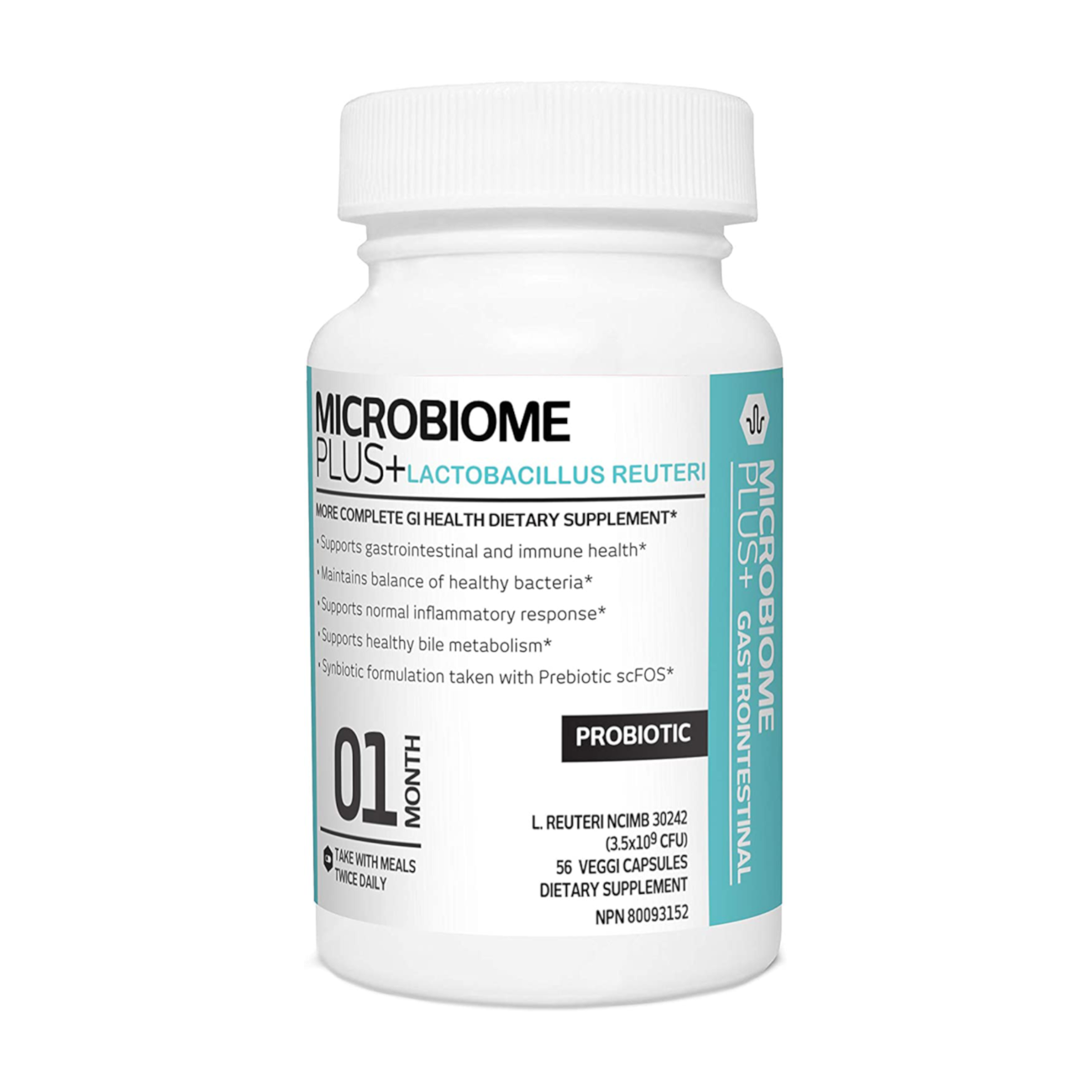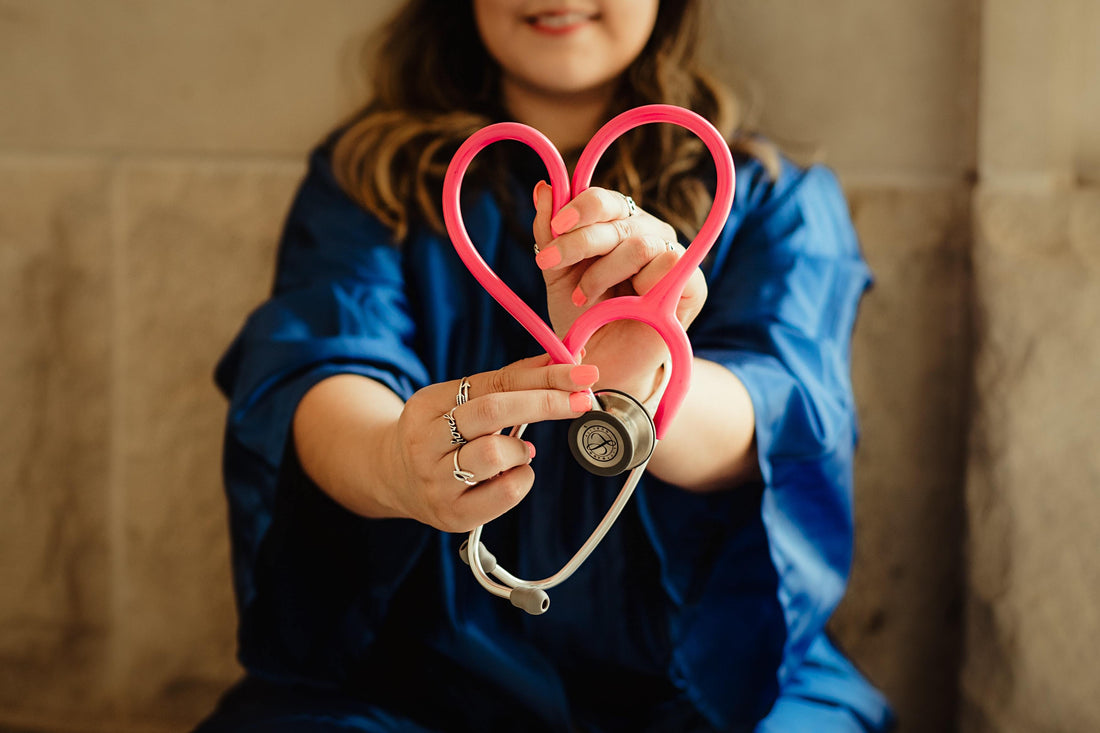If you’re worried about high cholesterol, you’ve probably heard about its downsides. But did you know that cholesterol also has a good side? In fact, your body needs cholesterol to build healthy cells and to produce many hormones and vitamins. Problems arise when too much “bad cholesterol” sits in your blood vessels and tissues, paired with inflammation and an unhealthy lifestyle.
Disclaimer: This post is for informational purposes only and is not meant to provide medical advice. Please talk to your doctor about your health concerns and consult them before taking any supplements or making changes to your regime.
Cholesterol Highlights
- Cholesterol is a fat-like substance found in your cells and blood
- Your liver produces cholesterol and you also absorb it from animal foods
- Cholesterol is essential to life—it builds cells and helps produce hormones, vitamin D, and bile
- High levels of LDL cholesterol are harmful
- HDL cholesterol is protective and anti-inflammatory
Cholesterol Infographic

What is cholesterol?
Cholesterol is a waxy, fat-like substance. All cells in your body have some cholesterol and all animal foods contain it.
Cholesterol travels throughout your bloodstream to and from tissues bound to proteins and fats.
Despite the bad rap, cholesterol has many good sides. It all depends on the type of cholesterol and how much of it you have and where in your body.
Where does cholesterol come from?
Only about a third of all cholesterol you carry comes from diet and the remaining 70% is synthesized in your body (Kapourchali et al., 2016).
This ratio is highly individual, though. Some people absorb and others produce cholesterol in excess (Lutjohann et al., 2019).
For example, cholesterol hyperabsorbers tend to absorb lots of cholesterol, produce little and are at the highest risk of heart disease (Lutjohann et al., 2019).
Read Next:
When you eat a meal containing cholesterol, your gut mixes it with fats, fat-soluble vitamins, and bile to boost absorption. Your gut lining cells then assemble cholesterol into spherical particles called lipoproteins. This is how dietary cholesterol can enter your bloodstream and travel throughout your body (Zampelas & Magriplis, 2019).
Any extra cholesterol not needed by your tissues is sent back to your liver (InformedHealth.org, 2006).
Only animal foods pack cholesterol (e.g. meat, butter, eggs). Plants contain phytosterols, which resemble cholesterol but your body can’t absorb or use them similarly.
Summary
Most of the cholesterol in your body comes from your liver, the rest is from animal foods. We all vary in how much cholesterol we produce and absorb.
How is cholesterol made in the body?
Unlike plants, humans and animals can make cholesterol. In fact, humans need to make cholesterol to stay alive and well.
All cells in your body can synthesize cholesterol in tiny amounts, but your liver and intestines are the main production sites (Craig et al., 2022).
The key enzyme for cholesterol production in your body is HMG-CoA reductase (Craig et al., 2022).
The activity of this enzyme determines how much cholesterol you’ll produce. Statins work by blocking HMG-CoA reductase, which reduces cholesterol production in the body (Bansal & Cassagnol, 2022).
What affects cholesterol production in your body?
Many factors can impact how much cholesterol your body will make, including (Zampelas & Magriplis, 2019):
- Genetics
- Age
- Sex
- Diet and cooking methods
- Lifestyle
- Physical activity
- Circadian rhythms
- Medications
- Other health conditions
It’s reassuring to know that most of these factors are modifiable. Start making healthier lifestyle and diet choices today, one step at a time.
Summary
Your liver produces most of the cholesterol in your body. Factors that influence it include your genetics, lifestyle, and diet.
What does cholesterol do in your body?
Your body needs cholesterol as a building block for (Craig et al., 2022):
- Sex hormones
- Adrenal hormones
- Vitamin D
- Bile
- Cells and tissues
Why your body needs cholesterol
Sex hormones like testosterone, estrogens, and progesterone affect your fertility, energy, and reproductive health.
Among adrenal hormones, cortisol is involved in your stress response, and aldosterone in mineral balance.
Vitamin D is key for your immunity, bone health, and overall wellness.
Meanwhile, bile supports digestion and the absorption of fat-soluble vitamins A, D, E, and K.
To add, cholesterol is essential for your cellular health. Membranes of all cells in your body structurally need cholesterol to stay healthy and strong (Craig et al., 2022).
And if that’s not enough, cholesterol is also a building block for your tissues (InformedHealth.org, 2006).
Some parts of your body—such as the lens of your eyes—benefit from incredibly high amounts of cholesterol (Zampelas & Magriplis, 2019).
Summary
Your body needs cholesterol to build cells and to produce sex hormones, adrenal hormones, vitamin D, and bile.
Cholesterol facts
Head over to this article to learn more about cholesterol (and uncover 100+ stats about it).
You can also read about common cholesterol myths vs. facts in this post.
Types of cholesterol
Since cholesterol does not dissolve in water (or blood), your body needs to bind it to other compounds to transport it. Your body does this by creating lipoproteins–spherical droplets packed with cholesterol, proteins, and fats that can travel through your bloodstream.
As lipoproteins travel around your body, they exchange cholesterol with cells. The two main types of lipoproteins are LDL and HDL (InformedHealth.org, 2006; Huff et al., 2022)
LDL
LDL is often called “bad” cholesterol.
It holds about 60-70% of your total blood cholesterol. LDL transports cholesterol from your liver to your tissues. (Elshourbagy et al., 2013).
High levels of LDL can clog your blood vessels, create plaque, trigger inflammation, and cause a host of complications. Small, dense LDL particles are especially dangerous and are independent risk factors for coronary artery disease (Elshourbagy et al., 2013; Kapourchali et al., 2016)
HDL
HDL has been termed the “good” cholesterol. Its role is to remove unneeded cholesterol from your tissues and transport it back to your liver.
HDL is also anti-inflammatory, reduces plaque risk, and helps protect your blood vessel lining. Studies reveal that higher HDL levels are linked with better heart health (Elshourbagy et al., 2013)
Summary
LDL is the “bad” and HDL is the “good” type of cholesterol. LDL cholesterol is linked with inflammation and heart disease, while HDL is protective.
What does cholesterol do to the cell membrane?
Your body is constantly working to keep the cholesterol in your body tightly regulated.
Cholesterol keeps cellular membranes strong and fluid. This helps nutrients and hormones move freely in and out of cells adapted to your body’s needs (Huff et al., 2022).
Too little cholesterol and cells become fragile and hormone levels fall out of balance (Craig et al., 2022).
Is high cholesterol bad?
Too much cholesterol and blood vessels become clogged and stiff, leading to atherosclerosis, stroke, and heart attacks (Ibrahim et al., 2022).
Blood vessel damage and high LDL can be a deadly combination.
Damaged blood vessel cells “leak” LDL cholesterol, which builds up and attracts immune cells called macrophages. Macrophages eat LDL, morphing into foam cells: highly reactive, inflammatory bubbles. At this point, inflammation is rampant (Huff et al., 2022).
Scar tissue eventually forms over the area, narrowing the blood vessel and making it rigid and constricted. This is how atherosclerotic plaque is created. If the plaque ruptures, a thrombus can break off and block blood flow, causing stroke and heart attacks (Huff et al., 2022; Elshourbagy et al., 2013).
The buildup of cholesterol in fatty tissues can also disrupt metabolism and is linked to weight gain (Ibrahim et al., 2022).
Fortunately, there are many hacks you can try today to improve your heart health quickly and naturally.
Summary
In balance, cholesterol builds cells and keeps your tissues healthy. In excess, LDL cholesterol causes plaque, inflammation, and even stroke and heart attacks.
Eating for your cellular health
Diet can have a major influence on your cellular makeup. The foods you eat literally become your cells.
For this reason, you do need healthy sources of fat, cholesterol, and protein. Yes, saturated fat included—as long as it’s in moderation and not from highly processed foods (Guasch-Ferré et al., 2015; Astrup et al., 2021).
Cholesterol Screening
Your doctor may order a lipid panel (lipid profile) to check your cholesterol levels.
A lipid panel includes:
- Triglycerides
- Total cholesterol
- HDL cholesterol
- LDL cholesterol
Based on your values, your doctor will determine whether you need to make lifestyle changes or take medication (Huff et al., 2022).
Read about normal triglyceride & cholesterol levels in this post.
A novel area of diagnostics includes cholesterol absorption testing that measures blood sterols. This screening helps personalize your treatment plan and rule out ineffective therapies. Boston Heart’s Cholesterol Balance Test and Mayo Clinic Laboratories are among the few labs to run it (Lutjohann et al., 2019).
Summary
The typical lab test to check for cholesterol and other markers is a lipid panel.
Wrap up
Despite being framed as dangerous, cholesterol plays a vital role in the body. Without cholesterol, your body wouldn’t be able to make many hormones, vitamin D, or bile.
However, too much cholesterol is harmful. High LDL can clog your blood vessels and cause heart complications.
You can start making healthier lifestyle and diet choices today to lower your risk. Don’t forget to regularly check your cholesterol blood levels to make sure you’re on the right track.
Read Next:
- 100+ Cholesterol Statistics & Heart Health Facts (2022)
- Are Your Gut Microbiome Bacteria Healthy or in Dysbiosis?
- 8+ Reasons to Avoid Plant Sterols (Side Effects & Risks)

Ana Aleksic, MSc Pharm
Ana is an integrative pharmacist and scientist with many years of medical writing, clinical research, and health advising experience. She loves communicating science and empowering people to achieve their optimal health. Ana has edited 800+ and written 150+ posts, some of which reached over 1 million people. Her specialties are natural remedies, women’s health, and mental health. She is also a birth doula and a strong advocate of bridging scientific knowledge with holistic medicine.










